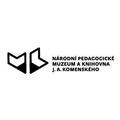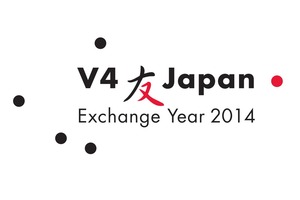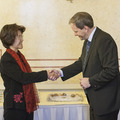 MŠMT ČR
MŠMT ČR
Navigace
Vyhledávání
Přepínání jazyků
 EN
EN
Publikovaných článků: 74
Věstník MŠMT 1/2015
Celý článek Pátek, 30. leden 2015 / Publikoval: Pilík Václav
Věstník MŠMT - celoroční obsah 2014
Celý článek Pátek, 30. leden 2015 / Publikoval: Pilík Václav
Semináře
Celý článek Pondělí, 1. srpen 2016 / Publikoval:
Aktuální situace konzultací v rámci strukturovaného dialogu s mládeží
Celý článek Pátek, 30. leden 2015 / Publikoval: Dvořáková Petra

Anketa o nejoblíbenější knihu pro děti a mládež vydanou v roce 2014
Celý článek Pátek, 30. leden 2015 / Publikoval: Šrámek Jan

Ministr školství předával vysvědčení prvňáčkům na Bruntálsku
Celý článek Čtvrtek, 29. leden 2015 / Publikoval: Macura Ondřej

MSMT-2377/2015-1 - uznávání výsledků vzdělávání a autorizace
Celý článek Středa, 28. leden 2015 / Publikoval: Šecová Denisa
Informace o vyhlášení výsledků rozvojových programů pro cizince - leden 2015 (nezletilí azylanti a občané členského státu EU)
Celý článek Úterý, 27. leden 2015 / Publikoval: Kavan Vladimír

Vyhlášení pořadí úspěšnosti projektů v rozvojovém programu Podpora implementace Etické výchovy do vzdělávání v základních školách a v nižších ročnících víceletých gymnázií v roce 2015
Celý článek Pátek, 30. leden 2015 / Publikoval: Krýzová Hana

Institucionální podpora na dlouhodobý koncepční rozvoj výzkumné organizace v roce 2015
Celý článek Úterý, 27. leden 2015 / Publikoval: Santus Arnold
Vyúčtování poskytnutých dotací za rok 2014 (Programy státní podpory práce s dětmi a mládeží)
Celý článek Pondělí, 26. leden 2015 / Publikoval: Drobilová Karolína

Výsledky výzvy k podávání návrhů společných česko-francouzských výzkumných projektů s dobou řešení 2015 - 2016.
Celý článek Pondělí, 26. leden 2015 / Publikoval: Santus Arnold
MSMT-1976/2015-1 - seznam profesí, k jejichž výkonu je nutná složená maturitní zkouška
Celý článek Pondělí, 26. leden 2015 / Publikoval: Šecová Denisa
Oznámení o výsledku veřejné zakázky "ZAJIŠTĚNÍ KONFERENCE PROJEKTU UNIV 3."
Celý článek Sobota, 24. leden 2015 / Publikoval: Štoud Jakub
Základ pro stanovení poplatků spojených se studiem
Celý článek Pátek, 23. leden 2015 / Publikoval: Svobodová Blanka

FINANCOVÁNÍ VYSOKÝCH ŠKOL - ROK 2015
Celý článek Pátek, 23. leden 2015 / Publikoval: Svobodová Blanka
Projekt K2 se blíží k cíli…
Celý článek Čtvrtek, 22. leden 2015 / Publikoval: Drobilová Karolína

Výzva k podávání návrhů projektů ve formátu V4 + Japonsko
Celý článek Čtvrtek, 22. leden 2015 / Publikoval: Núňez Lucie

Metodické doporučení k výuce vzdělávacího oboru Člověk a svět práce na 2. stupni základních škol
Celý článek Středa, 21. leden 2015 / Publikoval: Pohořelý Svatopluk

MSMT-1414/2015-1 - informace k č. j. MSMT-31855/2014 a k č. j. MSMT-31891/2014
Celý článek Středa, 21. leden 2015 / Publikoval: Šecová Denisa
MSMT-125/2015-1 - počet plátců DPH škol a školských zařízení
Celý článek Středa, 21. leden 2015 / Publikoval: Šecová Denisa
Marcel Chládek se setkal s velvyslankyní Číny
Celý článek Úterý, 20. leden 2015 / Publikoval: Šrámek Jan

Blíží se termín podávání žádostí o certifikaci ICM - Informačních center pro mládež
Celý článek Úterý, 20. leden 2015 / Publikoval: Drobilová Karolína

Výsledky rozdělení státních dotací v programech č. 1, 2 a 4 na rok 2015
Celý článek Středa, 4. únor 2015 / Publikoval: Drobilová Karolína

Účelová podpora na specifický vysokoškolský výzkum
Celý článek Pondělí, 19. leden 2015 / Publikoval: Núňez Lucie
Ministr školství navštívil Mladou Boleslav
Celý článek Pátek, 16. leden 2015 / Publikoval: Macura Ondřej

Vláda zahájila rok technického vzdělávání
Celý článek Pátek, 16. leden 2015 / Publikoval: Šrámek Jan

Veřejná soutěž ve výzkumu, vývoji a inovacích VES15 k programu mezinárodní spolupráce ve výzkumu a vývoji INGO II
Celý článek Čtvrtek, 15. leden 2015 / Publikoval: Núňez Lucie
Veřejná soutěž ve výzkumu, vývoji a inovacích VES15 k programu mezinárodní spolupráce ve výzkumu a vývoji EUPRO II
Celý článek Čtvrtek, 15. leden 2015 / Publikoval: Núňez Lucie
Veřejná soutěž ve výzkumu, vývoji a inovacích VES15 k programu mezinárodní spolupráce ve výzkumu a vývoji COST CZ
Celý článek Čtvrtek, 15. leden 2015 / Publikoval: Núňez Lucie
Veřejná soutěž ve výzkumu, vývoji a inovacích VES15 k programu mezinárodní spolupráce ve výzkumu a vývoji KONTAKT II
Celý článek Čtvrtek, 15. leden 2015 / Publikoval: Núňez Lucie
Veřejná soutěž ve výzkumu, vývoji a inovacích VES15 programu mezinárodní spolupráce ve výzkumu a vývoji EUREKA CZ (LF)
Celý článek Čtvrtek, 15. leden 2015 / Publikoval: Núňez Lucie
Veřejná soutěž ve výzkumu, vývoji a inovacích VES15 programu mezinárodní spolupráce ve výzkumu a vývoji EUREKA CZ (LF)
Celý článek Čtvrtek, 15. leden 2015 / Publikoval: Núňez Lucie

Veřejná soutěž ve výzkumu, vývoji a inovacích VES15 k programu mezinárodní spolupráce ve výzkumu a vývoji COST CZ
Celý článek Úterý, 10. březen 2015 / Publikoval: Núňez Lucie
Veřejná soutěž ve výzkumu, vývoji a inovacích VES15 k programu mezinárodní spolupráce ve výzkumu a vývoji KONTAKT II
Celý článek Čtvrtek, 15. leden 2015 / Publikoval: Núňez Lucie
Veřejná soutěž ve výzkumu, vývoji a inovacích VES15 k programu mezinárodní spolupráce ve výzkumu a vývoji EUPRO II
Celý článek Čtvrtek, 15. leden 2015 / Publikoval: Núňez Lucie

Veřejná soutěž ve výzkumu, vývoji a inovacích VES15 k programu mezinárodní spolupráce ve výzkumu a vývoji INGO II
Celý článek Čtvrtek, 15. leden 2015 / Publikoval: Núňez Lucie
Vyhlášení přehledu úspěšnosti projektů v rozvojovém programu Podpora logopedické prevence v předškolním vzdělávání v roce 2015
Celý článek Středa, 14. leden 2015 / Publikoval: Krýzová Hana

FAQ – Často kladené dotazy k administraci projektů CZ09
Celý článek Středa, 14. leden 2015 / Publikoval: Núňez Lucie
6. ročník - 2014 - stavební inženýrství a architektura
Celý článek Středa, 14. leden 2015 / Publikoval: Núňez Lucie
NEWSLETTER MŠMT O EVROPSKÝCH ZÁLEŽITOSTECH - 1./2015
Celý článek Středa, 14. leden 2015 / Publikoval: Kundeliusová Petra

Rok 2014 byl pro OP VK z hlediska čerpání velmi úspěšný
Celý článek Úterý, 13. leden 2015 / Publikoval:

MSMT-114/2015-1 - obor vzdělání 8241M05 Grafický design
Celý článek Úterý, 13. leden 2015 / Publikoval: Šecová Denisa
INVESTICE (předběžná výzva)
Celý článek Úterý, 13. leden 2015 / Publikoval: Drobilová Karolína

Cena Milady Paulové se bude v roce 2015 udělovat v oboru fyzika a astronomie - 7. ročník
Celý článek Úterý, 13. leden 2015 / Publikoval: Núňez Lucie

Oznámení o výsledku veřejné zakázky "Pořízení kancelářských potřeb pro projekt Kompetence III"
Celý článek Pondělí, 12. leden 2015 / Publikoval: Štoud Jakub
MŠMT připraví vzorový školní řád
Celý článek Pondělí, 12. leden 2015 / Publikoval: Macura Ondřej
MŠMT nabízí možnost krátkodobých neplacených stáží na odboru pro mládež
Celý článek Pondělí, 12. leden 2015 / Publikoval: Drobilová Karolína

Výběrové řízení na učitele pro evropské školy
Celý článek Pátek, 9. leden 2015 / Publikoval: Šrámek Jan

Metodický pokyn k účtování a hospodaření s transfery přijatými příspěvkovými organizacemi zřizovanými MŠMT z rozpočtu EU nebo FM
Celý článek Pátek, 9. leden 2015 / Publikoval: Vokounová Lenka
Metodický pokyn, kterým se stanoví způsob účtování transferů a dotací přijatých v rámci programu EDS/SMVS (ISPROFIN) příspěvkovými organizacemi
Celý článek Pátek, 9. leden 2015 / Publikoval: Vokounová Lenka
Metodický pokyn k účtování a hospodaření s transfery přijatými příspěvkovými organizacemi zřizovanými MŠMT z rozpočtu EU nebo FM
Celý článek Pátek, 9. leden 2015 / Publikoval: Vokounová Lenka
Metodický pokyn, kterým se stanoví způsob účtování transferů a dotací přijatých v rámci programu EDS/SMVS (ISPROFIN) příspěvkovými organizacemi
Celý článek Pátek, 9. leden 2015 / Publikoval: Vokounová Lenka
Normativy soukromých škol na rok 2015
Celý článek Pátek, 9. leden 2015 / Publikoval: Šmejkal Vladimír
Upozornění na změny v účetnictví vybraných účetních jednotek
Celý článek Čtvrtek, 8. leden 2015 / Publikoval: Brumovská Lucie
Webový portál ČŠI může pomoci s výběrem školy
Celý článek Čtvrtek, 8. leden 2015 / Publikoval: Macura Ondřej

Pokyny k vypracování periodické zprávy (PEZ) – 2014 pro Česko-norský výzkumný program CZ09
Celý článek Čtvrtek, 8. leden 2015 / Publikoval: Núňez Lucie
Announcement of allocation increase in CZ09 Programme for selected projects from reserve list
Celý článek Čtvrtek, 8. leden 2015 / Publikoval: Santus Arnold
Výsledky hodnotícího procesu programu Excelence SŠ 2014
Celý článek Středa, 7. leden 2015 / Publikoval: Drobilová Karolína

Republikové normativy škol a školských zařízení zřizovaných územními samosprávnými celky na rok 2015
Celý článek Středa, 7. leden 2015 / Publikoval: Šmejkal Vladimír
Nová aktualizovaná brožura o Ceně Milady Paulové
Celý článek Čtvrtek, 8. leden 2015 / Publikoval: Núňez Lucie

ITER - International Thermonuclear Experimental Reactor
Celý článek Středa, 7. leden 2015 / Publikoval: Núňez Lucie
Doklady o vzdělání - vysvědčení, výuční listy a diplomy (mimo dokladů z VŠ)
Celý článek Pátek, 20. květen 2016 / Publikoval: Kavan Vladimír
Výsledky hodnocení projektů na soutěže v roce 2015, na účast zástupců ČR na mezinárodních soutěžích a na mezinárodních soutěží v ČR
Celý článek Středa, 7. leden 2015 / Publikoval: Drobilová Karolína

MŠMT zveřejnilo předběžný harmonogram výzev OP VVV
Celý článek Úterý, 6. leden 2015 / Publikoval:

Oznámení o výsledku veřejné zakázky "Vývoj a provoz e-learningového prostředí ČŠI (platforma pro vzdělávání) II"
Celý článek Úterý, 6. leden 2015 / Publikoval: Štoud Jakub
Principy rozpisu rozpočtu a rozpis rozpočtu přímých výdajů RgŠ územních samosprávných celků na rok 2015 v úrovni MŠMT – KÚ
Celý článek Pondělí, 5. leden 2015 / Publikoval: Šmejkal Vladimír